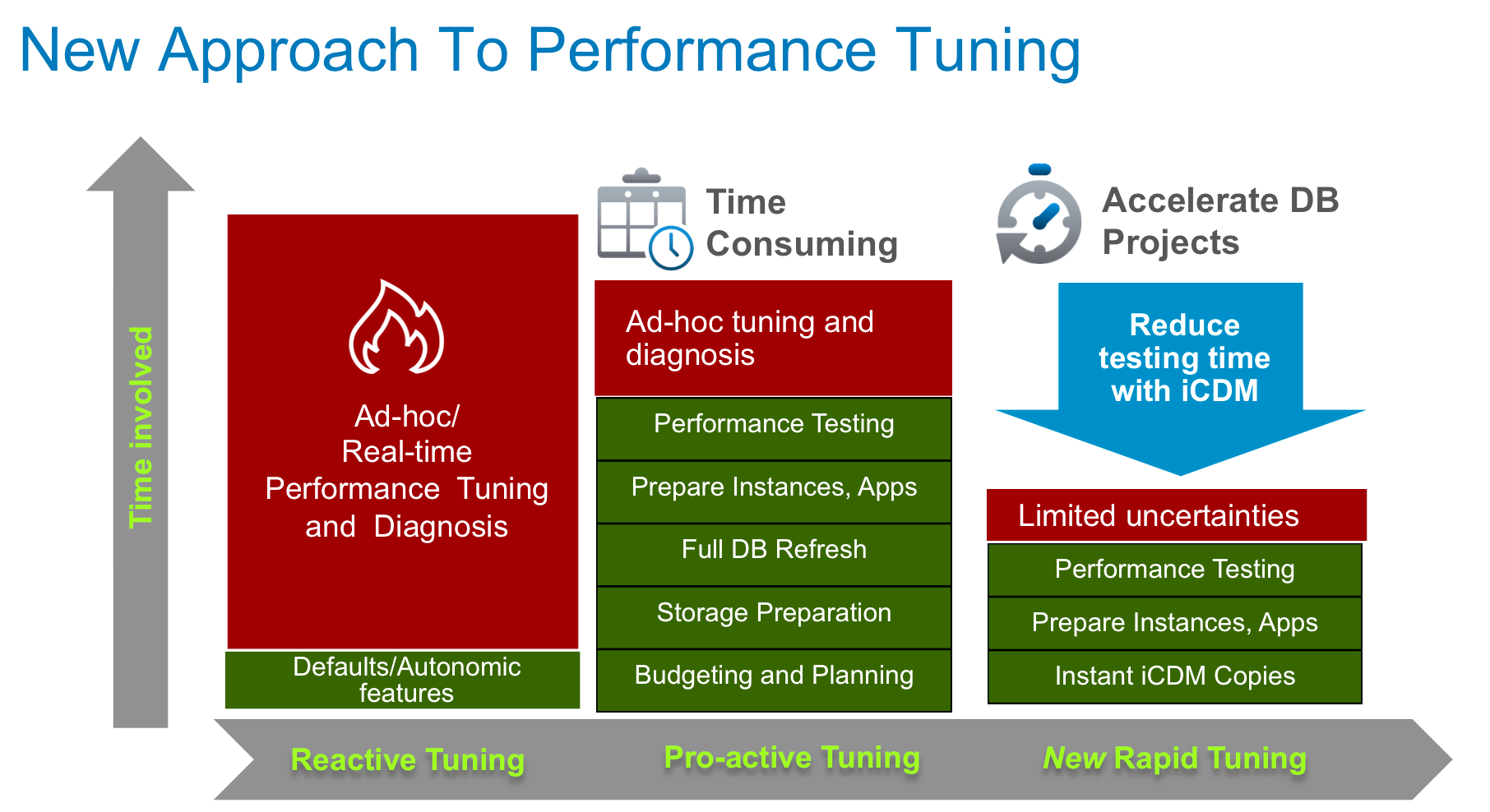At the recently concluded Oracle Open World show in San Francisco, many mutual customers of Oracle and Dell shared how their organizations benefited from the consistent low IO response time from Dell All Flash storage.
In one of the conversations, a DBA mentioned that having production databases on all flash storage while the test databases are on a slower disk-based storage system posed interesting challenges in database performance tuning and diagnosis. He went on to share how ‘Top Wait events’ on the Oracle AWR reports and the access paths suggested by the SQL Explain reports were different across production and test databases. Since the test databases were hosted on a slower disk-based storage system, he said, the application wait events observed in production were hidden behind the “User IO” class wait events in the test.
Traditionally, IT teams’ approach for performance testing has been to manage a production-like infrastructure with complete production data. When time is of the essence, database specialists would migrate the schema statistics from production and use optimizer hints on SQLs to influence database optimizer in order to pick a particular access path.
Although the proactive performance testing ahead of going live helps to reduce risk, these approaches have been complex, time consuming, and cost prohibitive. While the benefits of all flash storage are obvious for production environments, justifying flash-based media for test databases has been difficult.
I’m happy to share that, now, database and application teams can unlock Rapid Tuning with integrated Copy Data Management (iCDM) available on Dell All Flash Storage. Be it for either diagnosing a performance problem in production or evaluating the performance in the application development lifecycle, it is very easy to make a high-performance application-consistent copy of a database on Dell All Flash Storage in a space-efficient way.

Consolidation of performance-sensitive non-production databases as virtual copies on Dell all flash arrays automatically simplifies database operational activities such as upgrade and patching required ahead of testing. Since the test database copies also inherit the enterprise-class data services such as encryption and compression, the I/O performance would be completely comparable to that in production.
The earlier you identify the performance problems in your application testing, the cheaper it is to redesign and test the application. With the agility of making and refreshing database copies instantaneously, iCDM simplifies database performance testing and accelerates IT projects.